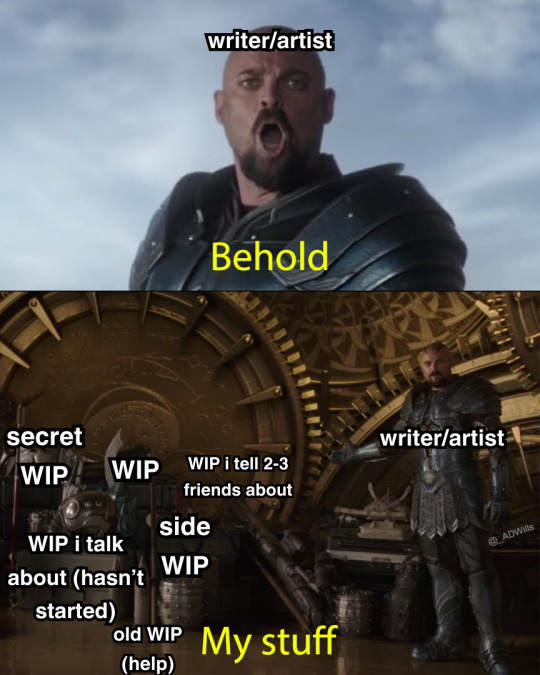Text
What's the trope name for when someone finds out they're the Chosen One(tm) and is like "No, thank you" and goes and does something else
123K notes
·
View notes
Photo

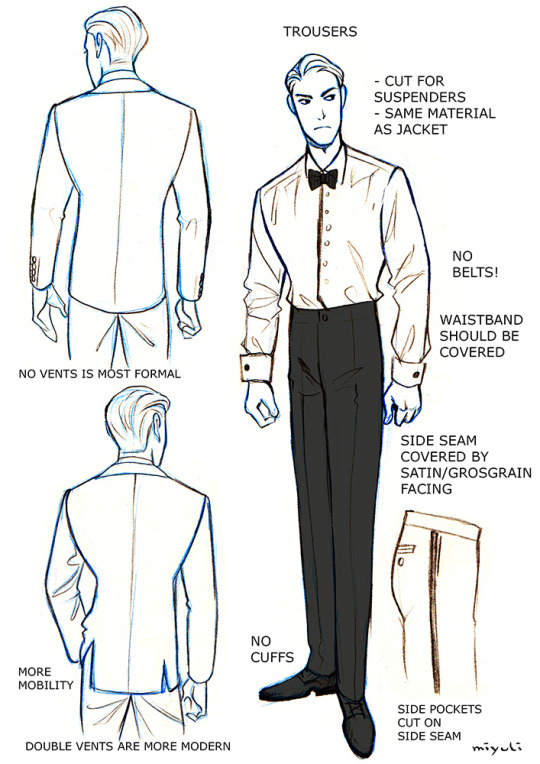

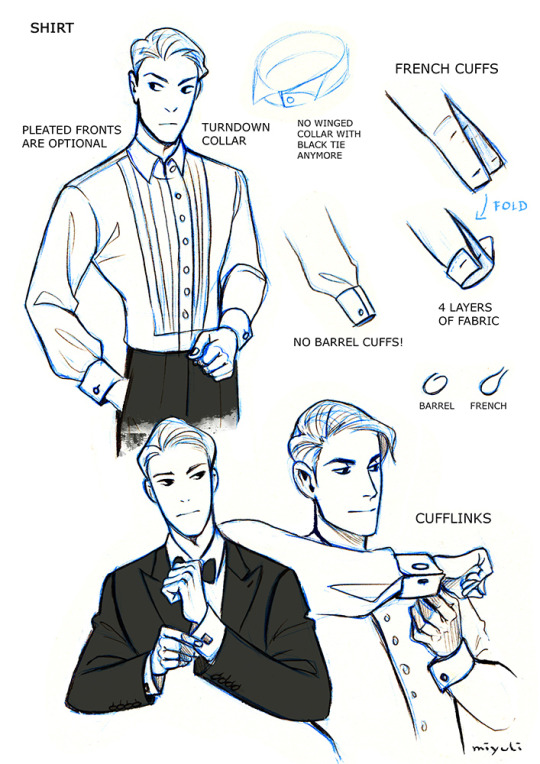

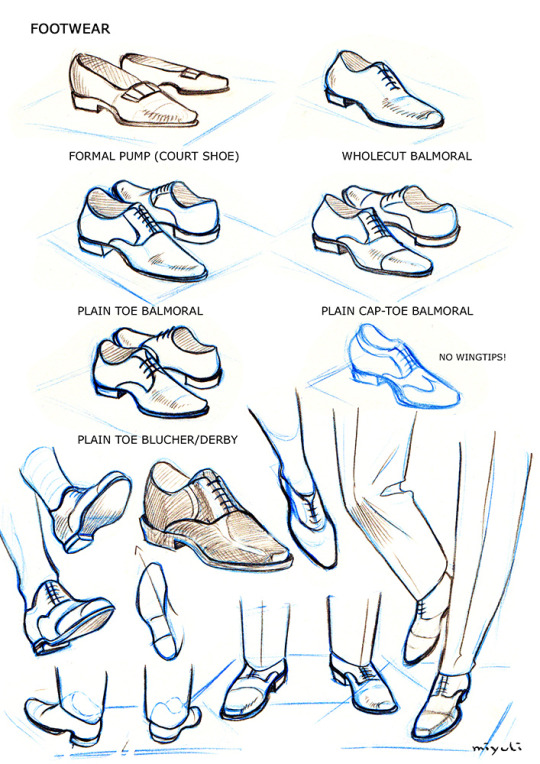
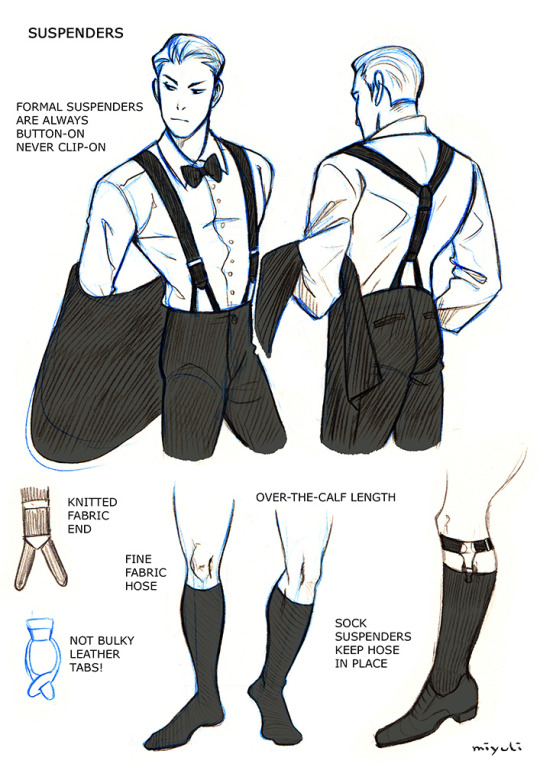
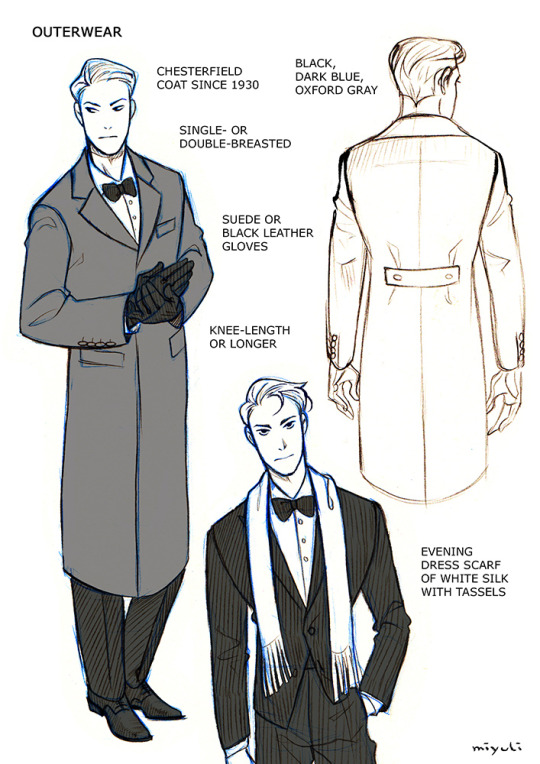
I’ve been studying the classic black tie dress code (mainly from here) so I thought I could share my notes. Maybe they can be helpful to someone else, too. If I made any mistakes or things are really confusing please tell me.
I also have some notes on white tie which I could share as well…
176K notes
·
View notes
Text
me, getting chased around my house by a murderer: alexa play what’s new scooby doo by simple plan
240K notes
·
View notes
Photo

Togepi ~ Turtleshell Pond
8K notes
·
View notes
Photo
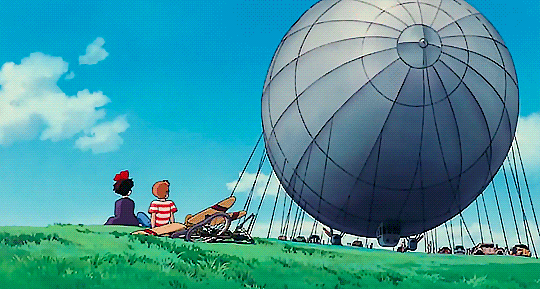

2K notes
·
View notes
Text
i want to share with you some of my favourite graffiti from Pompeii
“Weep, you girls. My penis has given you up. Now it penetrates men’s behinds. Goodbye, wondrous femininity!“
“Amplicatus, I know that Icarus is buggering you. Salvius wrote this.“
“We two dear men, friends forever, were here. If you want to know our names, they are Gaius and Aulus.“
“Floronius, privileged soldier of the 7th legion, was here. The women did not know of his presence. Only six women came to know, too few for such a stallion.“
“On April 19th, I made bread.“
“ I have buggered men.“
“If anyone does not believe in Venus, they should gaze at my girlfriend.“
“It took 640 paces to walk back and forth between here and there ten times.“
“Chie, I hope your hemorrhoids rub together so much that they hurt worse than when they every have before!“
“Epaphra is not good at ball games.”
“Two friends were here. While they were, they had bad service in every way from a guy named Epaphroditus. They threw him out and spent 105 and half sestertii most agreeably on whores.“
“Secundus likes to screw boys.“
315K notes
·
View notes
Text
the name "theresa" is so funny like. theres a what
101K notes
·
View notes
Text
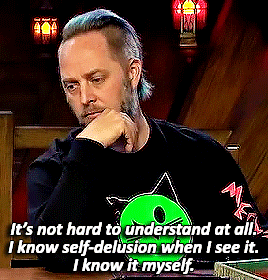
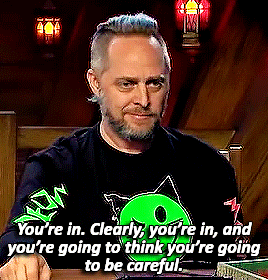

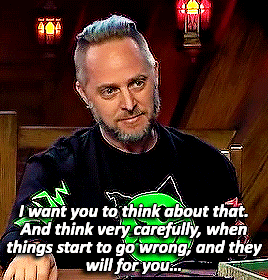
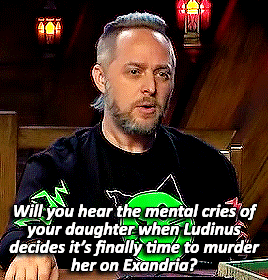

It's hard for me to fathom why you think that whatever comes next isn't bad.
+bonus:
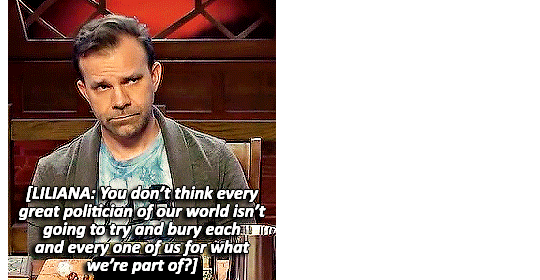
#critical role#cr spoilers#ashton greymoore#orym of the air ashari#liliana temult#taliesin jaffe#liam o'brien#actors#go off kings#i too am obsessed w this scene op#i love that they went off on liliana#she is IN it ashton is absolutely right#and nothing is more humbling than when orym pulls out his family card
754 notes
·
View notes
Text
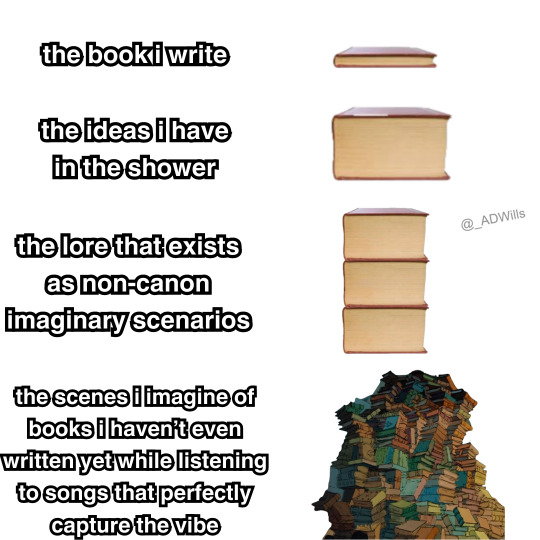
27K notes
·
View notes
Text

FCG plush and Caduceus quote pride shirt came in!
Now I have a memento for our dear Faithful Caregiver no matter what happens with the story, if Sam and the gang decide to reincarnate/restore him or leave his sacrifice as is. A little friend to remind me about my self worth and the importance of bonds with loved ones (and the shirt also reminds me of that too).
9 notes
·
View notes
Text
Pokemon: Delicious in Mystery Dungeon!

More design!
#pokemon#pokemon mystery dungeon#pmd#delicious in dungeon#dungeon meshi#oh no this is actually so cute#and laios as latios makes so much sense bc falin would be latias the brother sister dragon duo......#and latias is a RED dragon#who can become human as a disguise!!!! aaaa
467 notes
·
View notes
Text
Writing Exposition (Or Turning a Textbook into a Story)
Exposition concerns every facet of your work from character descriptions, backstories, and relationships, to world history, geography, religions/faiths/superstitions, politics, and current events. Whenever the author takes an aside to say “Joe, Bob’s second cousin, said ‘hello’,” the exposition is establishing that Joe is Bob’s cousin.
So shaming a story for its poor handling of exposition is like shaming a movie for bad visual effects. Yes, some of it is probably bad, but I guarantee that you did not notice every single VFX shot in the movie, and you weren’t supposed to.
Most examples of bad exposition occur when the following happens:
Informed Character A exposits to Informed Character B and tacks on “as you know” with full sincerity
Random Important Detail gets dropped in conversation that does not fit the tone or direction of conversation
Character suddenly monologues about The Thing unprompted
Convenient Breaking News Alerts
Character, out-of-character, begins monologuing about The Thing even when prompted
The pacing screeches to a halt so the Exposition Train can thunder past
Exposition exists to give information, and in order for a reader to understand a story, not all of it can or should be agonized over making perfect. Settings have to be established. Character names and relationships have to be understood. “Telling” over “showing” is, in my opinion, perfectly fine when the “showing” would take more lines, effort, and priority over a single inconsequential sentence. Heck, sometimes the “telling” is better than the “showing”. The trick to understanding when, how, and to what degree to give exposition is making it motivated.
What is motivated exposition?
See this post about character descriptions and the plight of the cliche “mirror” trope for unmotivated exposition.
Motivating your exposition means giving it a reason to exist where it does, prompted by the story you’re telling. Citing the “mirror” trope: I can have my character wake up and describe themselves to you, but in doing so, that rarely tells the audience anything more than just what to picture as they read. Or, I can have my character description spread out as those details become relevant. They’re describing their hair color and texture as it begins to irritate or distract them, telling us both what it looks like, and what our character thinks of it, and a little bit about their personality in how they treat it.
I can open the first chapter with a long-winded editorial about the long lost king destined to unite the shattered kingdoms, or I can wait until the tale becomes important to my characters to tell.
I can spin tapestries about politics before you’ve even met your hero, or I can wait until those politics begin to cause the hero problems and then invite the hero to talk about why those politics cause problems.
See this post about pacing and ensuring your scenes always do at least two things at once. Motivated exposition takes bland information’s singular purpose (to inform) and gives it flavor in coloring the personalities of the characters who give and receive it.
When to give exposition
Caveat: Not all front-loaded exposition is poorly-handled. Everyone loves the Star Wars title crawls because they’re a part of the episodic movie experience. Whether it’s a cheap way to deliver information is irrelevant.
Most prologues exist to front-load exposition and, because I love using Lord of the Rings as my shining example in every post, the trilogy opens with a lengthy speedrun of the main villain, some of the important pieces on the chessboard, the importance of the ring, the smeared reputation Aragorn must live up to and repair, and an idea of the stakes should the heroes lose. Not only is it a prologue, it’s a narrated prologue. There’s an impressive amount of information given in not a lot of time.
Last Airbender begins every single episode with a reminder about the 100 year war and the aggression of the Fire Nation and the purpose of the avatar.
With that said, prologues and title crawls are their own tangle of weeds.
As I said above, exposition should be given when the story gives it reason to exist. Don’t talk about the politics until you have a scene where discussing politics is relevant.
If you need to establish your cool, unique magic system, wait until you have a character using that magic and give it in little chewable bites. That character likely isn’t using every trick in the book right then and there. If they wrote Last Airbender as a novel and started explaining the other three bending styles the second Katara levitated some water, it would read sloppy and slog.
Or, leave the exposition as a mystery to be told later. Make your audience crave the hero’s backstory, piecing together little hints throughout the narrative until just the right moment comes along where your hero would realistically start spilling the beans about themselves. Have other characters frustrated at the lack of information. Have other characters missassume and be wrong about the information they think they know.
Have your characters crave knowledge about their world as much as your audience does.
How to give exposition
Exposition can be given three ways: Via the narrator, via dialogue, or via images or texts observed by the narrator (think news broadcasts or the front page of the paper, books, letters, videos, diary pages).
No matter which avenue you give exposition through, the less random it is, the less “hand of the author” the audience sees. Characters given a lucky break by a convenient breaking news alert is a mini deus ex machina —- the heroes do not earn their victory, it’s just given to them. They are not active in the plot making decisions, they are being railroaded by information as it falls into place before them.
Narrated exposition
The narrator’s internal monologue will interrupt the story to explain whatever needs explaining in that moment. The difference between it reading like a textbook and reading like a story is whether or not this information is important to the narrator.
Meaning, what does my hero feel about this new information? Katniss Everdeen in Hunger Games exposits the entire book because she’s alone for a fair chunk of it with no one to talk to, and she’s no stranger to the politics and history of her world. And yet, she has such strong feelings about everything she says that it doesn’t feel like she’s just giving information for the sake of informing. Everything she says and how she says it reflects on her personality and how she views her world.
Dialogue exposition
When Katniss is clueless about the tribute parade process and all the nuances of Capital life, how she asks about this information and how Effie, Cinna, and Haymich tell her also speaks to their personalities and biases about what they’re saying. In essence: Their exposition is in-character, and, thus, services their characters.
This is the complete opposite of when two informed characters exposit to each other information both already know for the sake of the audience because the author has no other way to give said information. A prime example is the hero happening to overhear two minions discussing The Plan dropping lines like “as you know” (which makes it worse every time).
The only time “as you know” works is when it’s in character. As in, the villain expositing to their minion they think is stupid and the minion reacting to that assumption appropriately. Or, the heroes are gathered to discuss The Plan and the leader of the meeting goes “as you know” because that happens in the real world. Bonus points if some characters are irritated by the redundant recap.
Exposition via dialogue also opens the door for lies, half-truths, and characters simply being wrong or blinded by their biases. Or, characters simply being ignorant of the world they live in. In Lord of the Rings, Gandalf is like 3,000 years old and has been all over Middle Earth. It doesn’t break the plot to have Gandalf exposit because he would realistically have witnessed or have deep knowledge about historical events and politics. Aragorn, too, is 87, and has ranged all over the place. He’s the future king and thus had better know his history and politics. Aragorn expositing makes sense.
Say what you will about Last Jedi but it has a prime example of nuanced exposition: Kylo Ren and Luke Skywalker have incredibly different perspectives on if/how Luke attempted murder on his nephew. There’s 3 sides to every story and the audience is never shown the truth. Had this been given in the title crawl, it would have lost much of its potency.
Dialogue also nurtures the relationships between the characters talking. Telling stories brings people together. If a character is sharing their backstory, why are they telling the narrator, and what does this mean to them as they tell it? If a soldier is sharing his grizzled leader’s backstory around a campfire, how does his relationship with his leader impact how he tells that story, what language he uses, how he sounds, the expressions on his face?
Third party exposition
Information given from an object can be incredibly hit or miss, depending on how hard the heroes worked to obtain it, and whether or not the object in question is meaningful to the heroes.
In the Assassin's Creed games, you abandon the gameplay in whatever historical era you're playing in to watch cutscene after cutscene of exposition (specifically referencing the Ezio Trilogy) by characters no one cares about, giving information that no one cares about, when we'd all rather just keep playing the game.
You can literally have a character read from a textbook, logbook, or daily minutes. What matters is how that info reads, and how the character responds to it. Is the information prejudiced or saturated with bigoted language? Is the mere existence of it where it is horrifying?
In the Mines of Moria (Lord of the Rings) Gimli learns that all his kin have been murdered by goblins once he sees their corpses all impaled with goblin arrows. Later, he finds his dead cousin’s crypt containing a dead dwarf cradling a book that tells of the downfall of Moria. The log entry isn’t finished, and the penmanship rapidly degrades as the dwarf writing it likely dies from his wounds, ending with the ominous, “We cannot get out, we cannot get out, they are coming.”
Had Gandalf warned Gimli ahead of time that all the dwarves were dead, or had they never found the crypt or figured out the owners of the arrows and simply were told “oh yeah we’re about to be attacked by goblins, I suspect they’re the reason Moria is a ghost town” that would have lost all emotional impact, and character development for Gimli.
This doesn’t have to be just objects, get creative! Have the hero watch a parody retelling of the Big Event. Have someone tell it like a ghost story around a campfire. Have it be a crazed rant all across live TV that no one takes seriously. Have six different characters remember it differently and all argue over who’s right. Have someone tell it poorly, thinking it “just a stupid rumor”.
When to withhold exposition
Satisfaction is the death of desire and sometimes uncovering the details of an enticing tidbit of information ruins whatever the audience had imagined to fill in the blanks. In terms of “showing” vs “telling” concerning worldbuilding, deciding whether to have a character speak about the information, or actually writing the scene they’re referring to, is entirely dependant on the story you’re telling.
If you are going to write a flashback, or describe a video of the event, that flashback and video has to be *packed* with as much information as you can cram in there as artfully as you can. Flashbacks and dream sequences take up space and entire scenes and settings need establishing so the audience isn’t floating in the ether trying to follow along. Which tends to mean that the meat of the flashback is barely half of the words you’re now forced to read.
Decide how important it is that the audience sees the incident as it happened, versus told in the aftermath through the biases and flawed memory of another character.
Sometimes the fewest amount of words pack the biggest punch. You can have a shattered soldier describe the battle of which they’re the last survivor in gory detail, or you can have them simply say “it was hell” and let the oomph hit in their expression, how their voice cracks, how vacant their eyes look. The injuries they sustained, the traumas visible in how they hold themselves. At that point, the audience can imagine whatever hell they want. At that point, what you are "showing" (the emotional and physical toll taken on the speaker) is likely way more important than the battle itself.
Concerning pacing — no matter how hard you worked on designing your politics and royal lineages and fantasy geography, odds are if that information isn’t important to your characters, it isn’t important to your readers. It’s not motivated.
I love trivia and fantasy maps as much as everyone else, but I like them on the wikis and next to the table of contents, not interrupting an engaging story.
And, give your audience credit where credit is due. How many fan theories stand on the basis of a few scant lines of narration or zoomed-in snippets of background characters (R+L=J anyone?) and pieces of costume? The mystery is what makes it fun, and I just watched the criminally disappointing second adaptation of the Lightning Thief completely robbed of that mystery every chance they had.
—
In short, the amount of exposition isn’t what makes it well or poorly handled, it’s how and when it’s delivered. Inception is my favorite sci-fi movie and the entire script is exposition, but the way it’s given is entertaining. Motivating your details to exist for a reason, to be given exactly when the time is right and not a moment before, is the spoonful of sugar helping the medicine go down.
Make it timely
Make it relevant
Make it important to the cast
Make it earned by the cast
Make it entertaining
226 notes
·
View notes
Text

gonna go die brb they’re both on the verge of losing their shit
#orym of the air ashari#ashton greymoore#critical role#cr spoilers#bells hells#they’re both so fucking done#they're ready to wreck shit#I'm so glad they got this moment to be so righteously upset
113 notes
·
View notes
Text
"your temples and politicians will hunt us down >:(" you mean for all the murder?

#critical role#cr spoilers#bells hells#dhdjfjsgsjf YEAH#liliana temult#like. ma'am. y'all have murdered. many innocent people.#if you turn over a leaf and help stop ludinus you'll get some leniency but the murders need to be answered for. ma'am.
202 notes
·
View notes



